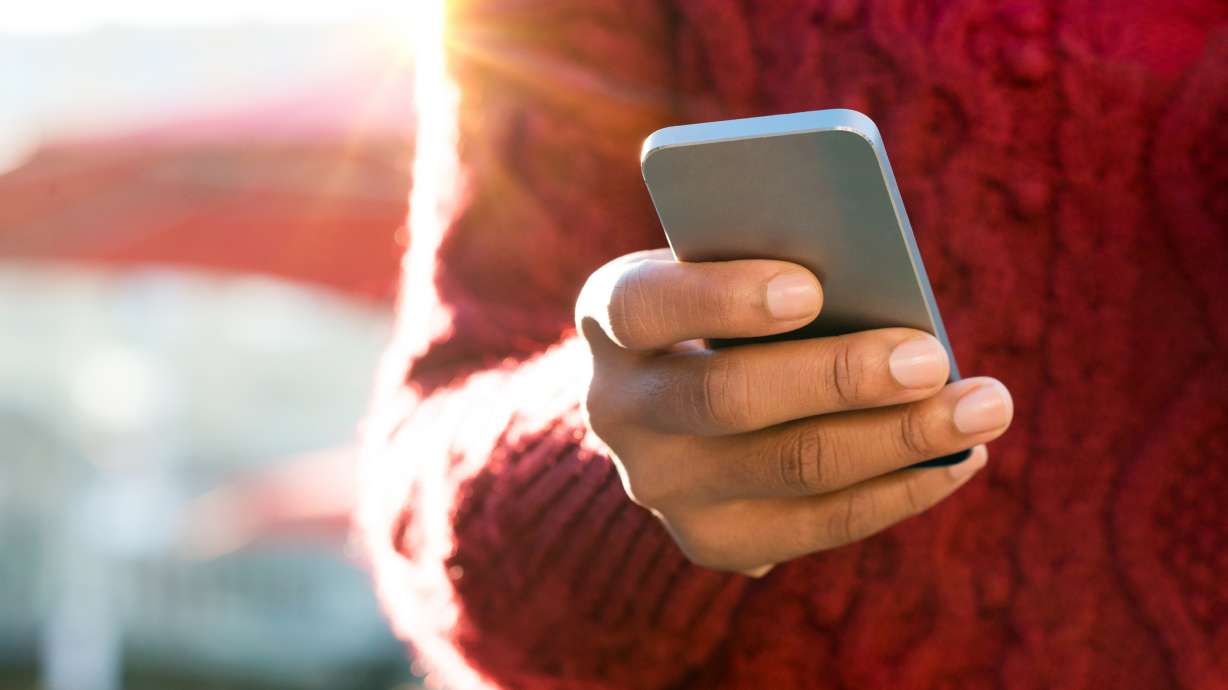Estimated read time: 4-5 minutes
This archived news story is available only for your personal, non-commercial use. Information in the story may be outdated or superseded by additional information. Reading or replaying the story in its archived form does not constitute a republication of the story.
SALT LAKE CITY — The FBI is investigating an attempted intrusion of the Voatz mobile voting system during West Virginia’s 2018 midterm elections, officials announced last week, throwing a spotlight onto an experimental app that Utah County used for the first time in this year’s primary elections.
Mike Stuart, U.S. attorney for the Southern District of West Virginia, said in a statement that there was “no intrusion and the integrity of votes and the election system was not compromised.” Stuart also said that the FBI investigation into the attempt is ongoing and that it’s still not determined whether any federal laws were violated.
Voatz is a new technology allowing overseas voters, like missionaries and U.S. military personnel, an alternative to email or traditional mail-in voting, which have long sparked concerns over security and anonymity risks. It’s an app that uses blockchain technology, a sort of public digital ledger, to encrypt and secure votes.
But the app has raised security concerns of its own. A 2018 election security report from the National Academies of Science, Engineering and Medicine said that blockchain voting may “seem promising” but “does little to solve the fundamental securities issues of elections, and indeed, blockchains introduce additional security vulnerabilities."
In a statement, the CEO of Voatz, Nimit Sawhney, said his app “worked as designed and intended” during the attempted breach.
“The attempt was detected, thwarted at the gate and reported to the authorities," he wrote in a statement sent to several media outlets. "We fully support the West Virginia Secretary of State’s office and the law enforcement agencies in their investigations under the purview of the law. Given that our elections infrastructure is classified as critical infrastructure under the Department of Homeland Security, we will continue to report any such attempts in the future.”
Though much of the recent election security discussion has focused on hostile foreign powers, CNN reported last week that the West Virginia attempt may have been the work of a University of Michigan student. Stuart’s statement suggested as much, as he warned of dire consequences for attempted interference in elections systems — whether “in the name of an academic exercise” or “to actually cause harm.”
“Even a mere attempt is unacceptable,” Stuart said. “If you do the crime, be ready to do the time.”
Although the investigation into the 2018 West Virginia intrusion attempt just recently became public, Utah County Clerk Amelia Powers Gardner said her office was made aware of it during its negotiations with Voatz.
She said the knowledge actually gave her more confidence in the app.
“I think the irony of this is that people think that this would … question your confidence in the system,” Powers Gardner said. “But it does the exact opposite.
“It gave us confidence to know that there was a hack attempt, that it was detected, that it was stopped, and it was reported.”
Sawhney said Friday that his company has faced "ideological opposition" from segments of the public and media.
"People are trying to portray as if something bad happened here," Sawhney said. "There's a false impression being created. ... These attempts happen on internet web systems all the time, every day, and that's not big news."
Utah County Chief Deputy Clerk Josh Daniels also said that traditional mail and email options are still available to overseas voters who would rather not use the app.
“If we’re going to send them a ballot, we need to know that before a certain date,” Daniels said. “We communicate with them well before that date and say … how do you want your ballot when the time comes?”
After the county's initial experience with the app, during August's municipal primary elections, Daniels said he was "pleasantly surprised" and called it "easier than expected" to use. He said the county will continue to use the option in future elections.
Twenty-two overseas Utahns used Voatz in August, he said.
Utah's state elections director, Justin Lee, said the state allows counties to test new means for reaching overseas and disabled voters. “The great thing about pilot programs is that they allow counties to try things out and see what works and what doesn’t work,” he said.
And for those who want to interfere, Powers Gardner and Daniels had words to echo Stuart’s warnings.
“If somebody makes these kinds of attempts,” Daniels said, “they will be found.”
“And they will be visited by the FBI,” Powers Gardner added.









